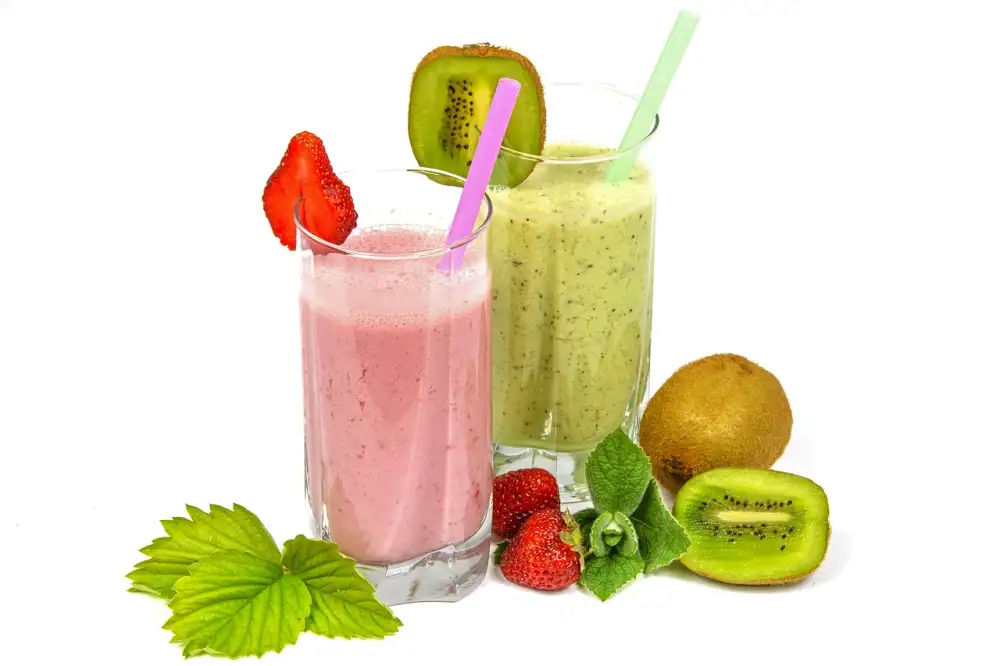Unveiling the Healthiest Energy Drink: Which One Reigns Supreme?

- Understanding the Importance of Health in Energy Drinks
- Key Factors to Consider When Evaluating Energy Drinks for Health
- Examining the Nutritional Content of Energy Drinks
- Comparing the Sugar and Calorie Content of Different Energy Drinks
- Analyzing the Caffeine Levels in Energy Drinks
- Exploring Additional Ingredients and Additives in Energy Drinks
- Considering the Potential Health Risks Associated with Energy Drinks
- Highlighting the Healthiest Energy Drink Options Available
In today's fast-paced world, energy drinks have become a popular choice for those seeking a quick pick-me-up. However, with concerns about the health implications of these beverages on the rise, it's essential to explore the healthiest options available. This article aims to shed light on the various factors to consider when evaluating energy drinks for their health benefits. By understanding the nutritional content, sugar and calorie levels, caffeine content, additional ingredients, and potential health risks associated with energy drinks, we can make informed choices for a healthier energy boost. So let's dive in and uncover which energy drink reigns supreme in terms of promoting overall well-being!
Understanding the Importance of Health in Energy Drinks
When it comes to energy drinks, health should be a top priority. These beverages are designed to provide a quick boost of energy, but they should also contribute to overall well-being. A healthy energy drink should not only provide an instant pick-me-up but also offer essential nutrients and support physical and mental vitality. With increasing concerns about the negative effects of sugary and caffeinated drinks, it is crucial to choose energy drinks that prioritize health without compromising on taste or effectiveness. By understanding the importance of health in energy drinks, consumers can make informed choices that benefit their bodies and minds.
Key Factors to Consider When Evaluating Energy Drinks for Health
When evaluating energy drinks for health, there are several key factors to consider. First and foremost, it is important to examine the nutritional content of the drink. Look for energy drinks that are low in sugar and calories, as excessive amounts can contribute to weight gain and other health issues. Additionally, pay attention to the caffeine levels in the drink. While caffeine can provide a temporary energy boost, consuming too much can lead to jitters, anxiety, and even heart palpitations. Lastly, take note of any additional ingredients and additives in the energy drink. Some drinks may contain artificial sweeteners, preservatives, or other chemicals that can be harmful to your health. By carefully evaluating these factors, you can make informed choices for a healthier energy boost.
Examining the Nutritional Content of Energy Drinks
When evaluating the nutritional content of energy drinks, it is crucial to consider the key components that contribute to their overall healthiness. One of the primary factors to examine is the presence of vitamins and minerals. Energy drinks fortified with essential nutrients such as B-vitamins, vitamin C, and electrolytes can provide added benefits for overall health and vitality. Additionally, assessing the protein content in energy drinks can be important for individuals looking to support muscle recovery and growth. Protein-rich options can help replenish amino acids lost during physical activity. Furthermore, examining the presence of antioxidants in energy drinks is vital as these compounds play a crucial role in combating oxidative stress and promoting cellular health. By scrutinizing the nutritional content of energy drinks, consumers can make informed choices that align with their dietary needs and goals.
Comparing the Sugar and Calorie Content of Different Energy Drinks
When it comes to energy drinks, the sugar and calorie content is an important factor to consider. Many popular energy drinks on the market today are loaded with excessive amounts of sugar, which can lead to weight gain and other health issues. It's crucial to compare the sugar and calorie content of different energy drinks before making a choice. Opting for drinks with lower sugar and calorie content can help maintain a healthier lifestyle while still enjoying an energy boost. Always check the nutrition labels and choose wisely!
Analyzing the Caffeine Levels in Energy Drinks
One of the key factors to consider when evaluating energy drinks for health is the caffeine content. Caffeine is a stimulant that can provide a temporary boost of energy, but excessive consumption can lead to negative health effects.
Different energy drinks vary in their caffeine levels, with some containing significantly higher amounts than others. It is important to be aware of these levels and understand how they may affect your body.
Excessive caffeine intake can cause symptoms such as increased heart rate, restlessness, and difficulty sleeping. It can also lead to dehydration and dependence on caffeine for energy.
When choosing an energy drink, it is advisable to opt for those with moderate caffeine levels. Look for options that provide a balanced amount of caffeine without going overboard. This will help you avoid potential health risks while still benefiting from an energy boost.
Remember, moderation is key when it comes to consuming caffeine. Be mindful of your overall caffeine intake from all sources, including coffee, tea, and other beverages or foods that contain caffeine.
By analyzing the caffeine levels in energy drinks and making informed choices, you can ensure that you are selecting a healthier option that aligns with your personal needs and preferences.
Exploring Additional Ingredients and Additives in Energy Drinks
When evaluating energy drinks for their healthiness, it is important to consider the additional ingredients and additives they contain. Many energy drinks are loaded with artificial sweeteners, flavors, and colors, which can have negative effects on our health. Some common additives include taurine, guarana, and ginseng, which are believed to boost energy levels. However, these ingredients may also come with potential side effects such as increased heart rate and blood pressure. It is crucial to read the labels carefully and opt for energy drinks that use natural ingredients and minimal additives to ensure a healthier choice.
Considering the Potential Health Risks Associated with Energy Drinks
While energy drinks can provide a quick boost of energy, it is important to be aware of the potential health risks they may pose. One major concern is the high caffeine content found in many energy drinks. Excessive consumption of caffeine can lead to increased heart rate, high blood pressure, and even cardiac arrhythmias.
Additionally, the high sugar content in some energy drinks can contribute to weight gain and increase the risk of developing conditions such as diabetes and tooth decay. The combination of caffeine and sugar can also lead to dehydration and disrupt sleep patterns.
Furthermore, energy drinks often contain additives such as taurine, guarana, and herbal extracts that may have unknown effects on the body. These ingredients have been associated with adverse reactions including heart palpitations, anxiety, and digestive issues.
It is crucial for consumers to be mindful of their overall health when consuming energy drinks. Moderation is key, and individuals should consider alternative ways to boost their energy levels such as getting enough sleep, staying hydrated, and eating a balanced diet.
Highlighting the Healthiest Energy Drink Options Available
When it comes to choosing the healthiest energy drink, there are a few options that stand out. One top contender is green tea, known for its natural antioxidants and lower caffeine content compared to other energy drinks. Another option is coconut water, which provides hydration and electrolytes without added sugars or artificial ingredients. Additionally, herbal teas such as ginseng or matcha can offer a natural energy boost without the negative effects of excessive caffeine. Ultimately, the healthiest energy drink will depend on individual preferences and dietary needs. It's important to read labels, consider nutritional content, and choose drinks with minimal additives for a healthier energy boost.
In conclusion, when it comes to choosing a healthier energy drink, it is crucial to prioritize your health and well-being. By considering factors such as nutritional content, sugar and calorie levels, caffeine levels, and additional ingredients, you can make informed choices that align with your health goals. Opting for energy drinks with lower sugar and calorie content, moderate caffeine levels, and minimal additives can help you achieve a healthier energy boost. Remember to always read labels carefully and consult with healthcare professionals if needed. With the right knowledge and awareness, you can enjoy an energy boost without compromising your health.
Published: 12. 01. 2024
Category: Health



